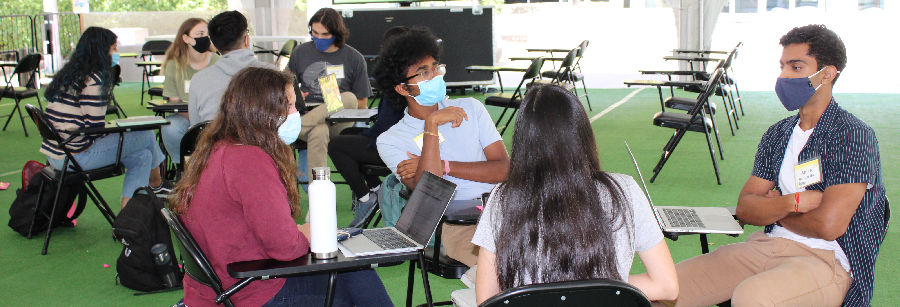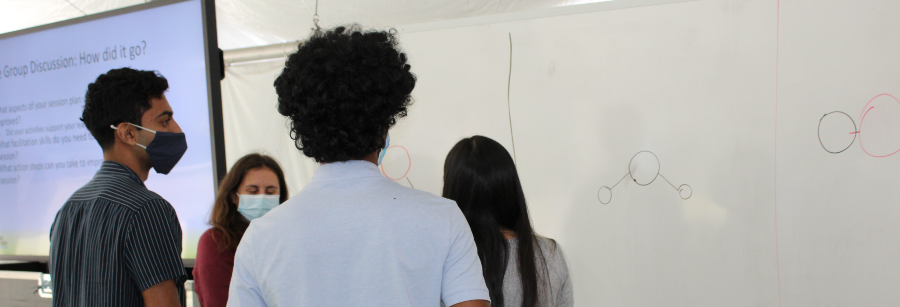SI (Peer-Led Learning Support) Student FAQ
Supplemental Instruction (SI) (Peer-Led Learning Support) provides an opportunity for students to actively and deeply learn course content by engaging in discussion with peers enrolled in the class. These groups are not meant to be tutoring or review sessions. The Leaders prepare session plans to encourage and guide students in teaching and learning with each other. It is offered through the Academic Achievement Hub at UC San Diego.
Top reasons to attend a SI (Peer-Led Learning Support) session:
Understand the subject better
Get better grades
SI (Peer-Led Learning Support) can help solidify and clarify the material, leading to a more promising classroom experience, and potentially a higher GPA! By understanding the subject and feeling motivated, students will feel more willing to do better in class, on tests, and on assignments.
In a way, SI (Peer-Led Learning Support) is also a built-in tutoring session. For those who know the material, it is a great way to review and refine their understanding of it, and for those struggling, they gain a fresh perspective that might suit their learning style better. Some students might be better at explaining the material to their classmates, which helps everyone better understand the material.
Gain diverse, multifaceted insight
Maintain responsibilities for learning
Gain team experience
Promote time management and reduce procrastination
Improve problem solving skills
By learning how to adapt to the work and study styles of others, students will sharpen their problem-solving skills. When there are 3-5 conflicting ideas, theories, and practices in a single group, students must decipher which idea is the best; this takes patience, sacrifice, and essential skills to resolve the issue.
In a positive way, this kind of healthy debate is also good for students. Being challenged to defend your ideas, perspectives, and find solutions that suit others, not just yourself, will be needed in every other area in life as well.
Are SI (Peer-Led Learning Support) Sessions Available for My Courses?
View SI (Peer-Led Learning Support) Schedule
Not seeing your course? Check out these other academic support offerings available to you:
- Content Tutoring: https://aah.ucsd.edu/content-tutoring/
- Writing Support: https://writinghub.ucsd.edu/
- Experiential Learning: https://elt.ucsd.edu/
- OASIS Math & Science Tutorial Program: https://oasis.ucsd.edu/academic-services/mstp-folder/index.html


